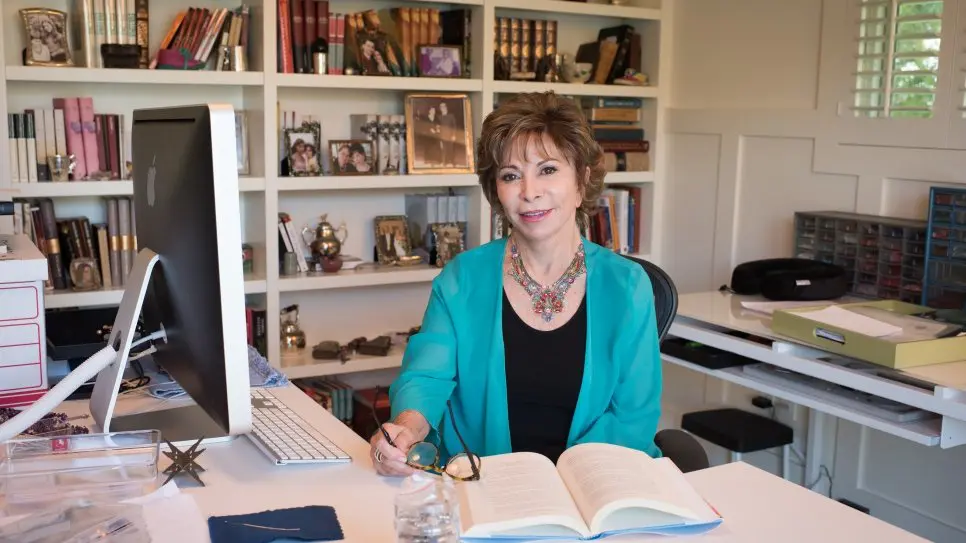
Bestselling Chilean writer and former refugee Isabel Allende in her study. © Courtesy of Isabel Allende
The bestselling Chilean writer was once a refugee herself. Concern for the displaced is at the heart of her latest novel.
By Coco Campbell in London
With 70 million forcibly displaced people worldwide, many people see refugees as statistics. But not Isabel Allende.
The bestselling author, who was herself forced to flee her native Chile, sees refugees as people who deserve our understanding.
“When you are a refugee you lose your nation, your tribe, and you have to make a new community. Without other human beings helping you it’s impossible to make it,” she said in a recent interview.
Her latest novel, A Long Petal of the Sea, uses a historical episode that followed the 1936-39 Spanish Civil War to dramatize her point of view.
“When you are a refugee you lose your nation, your tribe, and you have to make a new community.”
It follows the journey of fictional character Viktor Dalmau, one of among half a million refugees who fled the war to France, where many were held in grim internment camps. Many died.
Chilean poet Pablo Neruda responded to the human tragedy by commissioning an old cargo ship called the Winnipeg to transport 2,000 of the refugees to Chile.
Allende was recently in London to promote her book and was interviewed by Rosianna Halse Rojas, a supporter of UNHCR, the UN Refugee Agency. Rojas is a well-known vlogger and co-founder of Life’s Library Book Club.
https://twitter.com/Refugees/status/1235499251456753665
In conversation, Allende explained the logic behind her choice of story and argued the role of a novelist is to create empathy.
“The whole theme of this book is that you should live with an open heart … The moment you tell a story someone becomes a person, and you can connect,” she said.
“The hearts of the Spanish refugees were wounded by loss and separation, but their eyes were set firmly on the future,” she said.
Allende’s insight is sharpened by personal experience as a refugee.
After her relative, President Salvador Allende, died in a military coup in 1973, she risked her life arranging safe passage out of Chile for victims of oppression. She only abandoned her homeland when she received death threats.
Once in Venezuela, she thought she would stay just a couple of months. But it was not safe to return to Chile and her family eventually joined her in the South American country, where she spent 13 years.
“People who are desperate need to find a place where they feel safe.”
At first the new country shocked her. For a start, she found it strange to be in a place where she could live without fear.
“It was hard. But then I connected to Venezuelan families and they were so kind and so welcoming,” she said.
It was during her exile in Venezuela that she wrote her breakout novel, the House of the Spirits. She has since written more than 20 works of fiction and memoir that have together sold more above 56 million copies in more than 30 languages.
There is little doubt that those experiences of fear, flight and welcome spurred her creativity and helped make her one of the most important and respected writers in Latin America.
It also makes the novel deeply relevant today.
“The theme of refugees is in the air and people think the crisis can be solved by building walls but that doesn’t work. People who are desperate need to find a place where they feel safe …. We need to work together to find global solutions,” she said.
Originally published by UNHCR on 05 March 2020





